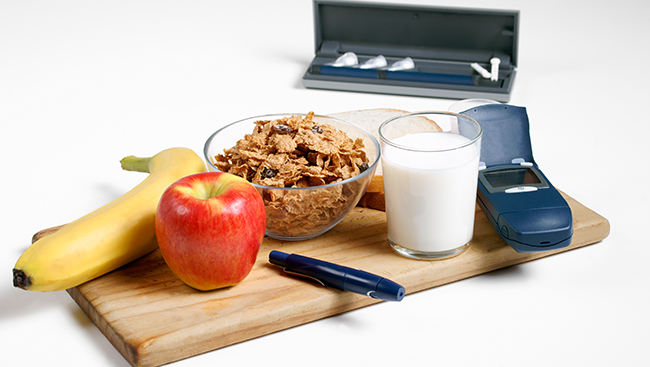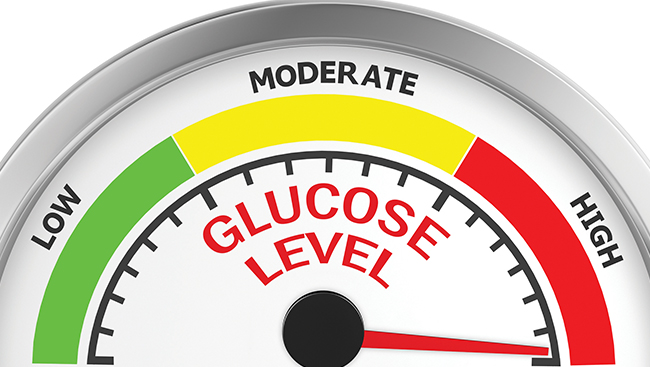Myths about diabetes will always persist, and it’s important to separate fact from fiction.
Diabetes is a disease with many causes and no known cure. It’s a global issue, but the impact is felt in communities throughout Canada. If you don’t have diabetes, there is a very good chance someone in your family or circle of friends does.
Today, 11 million Canadians live with diabetes or prediabetes. The number of Canadians with diabetes has doubled in the last 12 years and that growth continues with another person diagnosed every three minutes.
Diabetes is defined by higher than normal levels of glucose (sugar) in the blood and can lead to serious complications. The personal health burden is significant – diabetes costs five to 15 years of life expectancy; it contributes to 30 per cent of strokes, 40 per cent of heart attacks, and 70 per cent of all non-traumatic amputations as well as being a leading cause of blindness. It’s important that Canadians educate themselves about the disease to recognize if they are at risk.
✘ Myth #1:
Diabetes is the fault of the person who has it, because of bad lifestyle choices or too much sugar.
✔ The Fact:
Type 2 diabetes is a complex problem with roots in genetics, the environment, and individual behaviour choices. It runs in families and few individuals diagnosed with type 2 diabetes do not have even one relative with it. It is also more prevalent in certain population groups, most notably Aboriginal, South Asian, and Afro-Caribbean peoples.
For some who carry a potent genetic risk for diabetes, no amount of physical fitness or healthy eating will protect them from developing the disease. A second contributor to the diabetes epidemic is the environment in which we live – factors such as the walkability of neighbourhoods along with access to nutritious food and local health facilities and services.
For people at risk of diabetes, behaviour choices that promote obesity increase that risk. Improving diet and physical activity levels has been shown to reduce the risk by nearly 60 per cent. However, over-emphasizing weight reduction leads to unbalanced messaging around the causes of the disease, such as simply saying it is a result of eating too much sugar. To blame individual behaviour choices is a disservice to those with the disease and contributes to stigma.

✘ Myth #2:
You should eat more protein than carbohydrates.
✔ The Fact:
This myth is based on the fact that some carb-rich foods contribute to a rise in blood sugar. In reality, substituting carbs with protein sources like meat, eggs and milk can lead to an imbalanced diet and weight gain. Follow Eating Well with Canada`s Food Guide to ensure you choose enough foods from all four food groups.
✘ Myth #3:
People with diabetes can’t eat white-coloured food.
✔ The Fact:
White-coloured foods almost always have a healthier alternative, think whole-grain rice or bread, but an occasional indulgence isn’t forbidden. As with most foods, the trick is moderation and portion control. Of course brightly-coloured fruits and vegetables should be a part of everyone’s daily routine. Consult with your health team for advice. You might be surprised at what you can and cannot eat.

✘ Myth #4:
People with diabetes can’t eat their favourite foods.
✔ The Fact:
This is almost always untrue, but living with diabetes does mean being careful about your food choices. Choose smaller portions, and if you’re eating sweets, try substituting artificial sweeteners for added sugar. A little research into what you’re eating and portion control will allow you to enjoy most of your favourite treats in moderation, regardless of diabetes.
✘ Myth #5:
People with diabetes can’t drink alcohol.
✔ The Fact:
Most people with diabetes can, but in moderation. One rule of thumb is to always stick to beer, dry wines or straight liquor, and steer clear of sugary mixed drinks and cocktails. Alcohol is loaded with empty calories, and can cause unwanted weight gain. Diabetes Canada recommends limiting alcohol to no more than 10 drinks a week for women, and 12 to 15 for men.

✘ Myth #6:
Having diabetes means you’re doomed.
✔ The Fact:
Far from it! Diabetes is a disease, and has to be treated seriously. Scheduled check-ups with your health-care team, watching your diet and medication, regular physical activity, and a positive outlook help you lead a long and happy life. In most cases, diabetes can be controlled, as long as you’re committed to staying healthy.
Learn more about diabetes and you
Early risk detection can help people change habits to prevent the onset of type 2 diabetes and reduce complications. Knowing the risk factors is key to prevention and early detection.
You cannot prevent type 1 diabetes, however, Diabetes Canada believes there are things we can do to reduce type 2 diabetes rates, including prevention activities that focus on healthy eating, physical activity, and stress reduction. If you are at risk for type 2 diabetes, you need to talk to your doctor and get tested.
If you have diabetes, work with your health-care team, including a certified diabetes educator, to keep your blood sugar levels in check and get tips to effectively manage your diabetes. Finally, learn everything you can; knowledge is the key to managing diabetes.
✚ Who is at the risk of Diabetes
➞ If you are over the age of 40, Diabetes Canada recommends you get checked every three years, and more frequently if you have any of these risk factors:
➞ You have a parent or sibling with diabetes
➞ You are a member of an ethnic group at high risk for type 2 diabetes (African, Hispanic, Asian, South Asian, and Aboriginal)
➞ You are overweight
➞ You have high blood pressure or high cholesterol
➞ You have been diagnosed with prediabetes

About the author
Dr. Jan Hux is the Chief Science Officer at Diabetes Canada. She holds an MD from the University of Toronto and a Masters in Epidemiology from Harvard. For 20 years, she held a variety of research and executive roles at the Institute for Clinical Evaluative Sciences (ICES) in Ontario, where she was responsible for developing and leading the diabetes health services research portfolio. Visit www.diabetes.ca for more information on diabetes.






